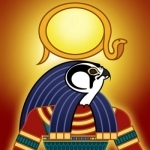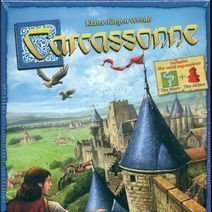
Reiner Knizia's Ra
Games and Entertainment
App
Summer Sale + 64bit update celebration! We are working hard to avoid the Appocalypse - help support...

Bóng đá 0h - Kết quả trực tiếp
Sports and News
App
Bóng đá 0h là ứng dụng dành cho cộng đồng các fan hâm mộ bóng đá cần có...
Rikki Hammond (33 KP) rated Carcassonne in Tabletop Games
May 23, 2019
The rules of Carcassonne are very simple. Each player will pick a random tile from a stack, and starting with the first player (who always starts with the same beginning tile) will place their tile, so that it connects to one or more adjacent tiles. Each tile will have a road, city or church on it. Roads can only connect with roads, cities with cities, and churches around either of these.
Once a tile is placed, the player can then choose to place one of their meeples on it, either on a road, city, church, or surrounding field. Once that particular area is completed (a road connects to a town, city or church on either end or a city is completely walled around) then that meeple scores you points. 1 point for each section of road per tile, 2 points for each city piece per tile (double if that city tile has a shield on it) and you will score 9 points if you manage to completely surround a church with 8 other tiles. Once the meeple scores, the player removes it from the tile, and can be used again on another tile.
Play continues like this until the tile stack is depleted, then some endgame scoring occurs, where unfinished roads, churches and cities score 1 point per tile in the area. If farmers were used (laying a meeple face down on a field) then 3 points are scored per completed city in that field area. If ever two meeples share the same city, road or field through future tile placements, then each player will get the same points, and whoever has the most points at the end, is the winner.
Carcassone plays between 2 to 5 players, and having played with all player counts, I can say that it plays well, no matter how many players are there. The components are great. The tiles are colourful, and one the game is over, you can build some pretty impressive landscapes. Each player will have different coloured meeples, so it's easy to tell whose is whose, and the score tracker is a handy addition.
My only criticisms I can find is that, after playing a few games, you find that there's not much in the way of variety when it comes to placement of the tiles, and some more hardcore gamers could class this game as too simple. But these are very minor niggles.
Personally, I think Carcassonne is a fantastic first step for people who may not have played many board or tile games before, and if you do get tired if it, there are tonnes of expansions for it, which can add more variety to the game.

CalConvert: Currency Converter
Utilities and Productivity
App
CalConvert is the most useful advanced scientific calculator and unit converter on the App Store!...

CalConvert: Pro Calculator
Utilities and Productivity
App
CalConvert is the most useful advanced scientific calculator and unit converter on the App Store!...

Currency Converter: Calculator
Travel and Utilities
App
______◢◤ “A TRAVEL ESSENTIAL!” [Free for a limited time only] ◥◣______ Ever wonder how...

Currency Exchange - Currency Converter
Travel and Finance
App
Currency Exchange is powerful and elegant Currency Converter application for your iPhone & iPod...

RTÉ Player International
Entertainment
App
Explore the best of Irish television and watch RTÉ Player International abroad. Enjoy instant...

L’EQUIPE, sports en direct
Sports and News
App
Téléchargez gratuitement l’application L’ÉQUIPE pour iPhone et iPad, la référence des...

Car Driving School: Parking 3D - Car Drive Parking Career and Driving Test Run Game
Games and Entertainment
App
Car Driving School Parking 2016 is the brand new car driving and parking simulation game where you...
